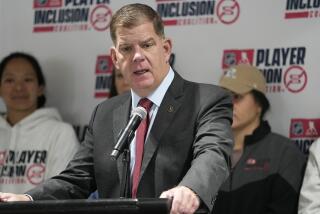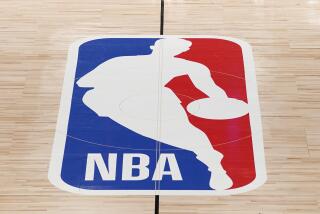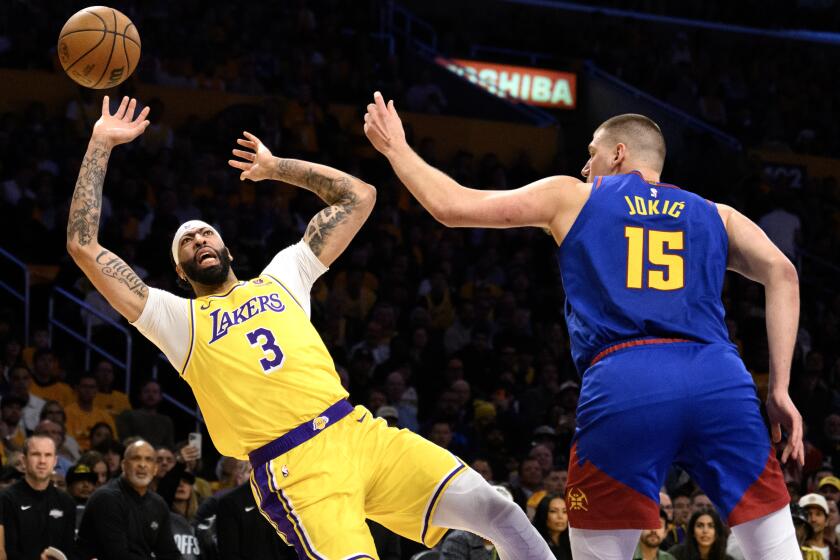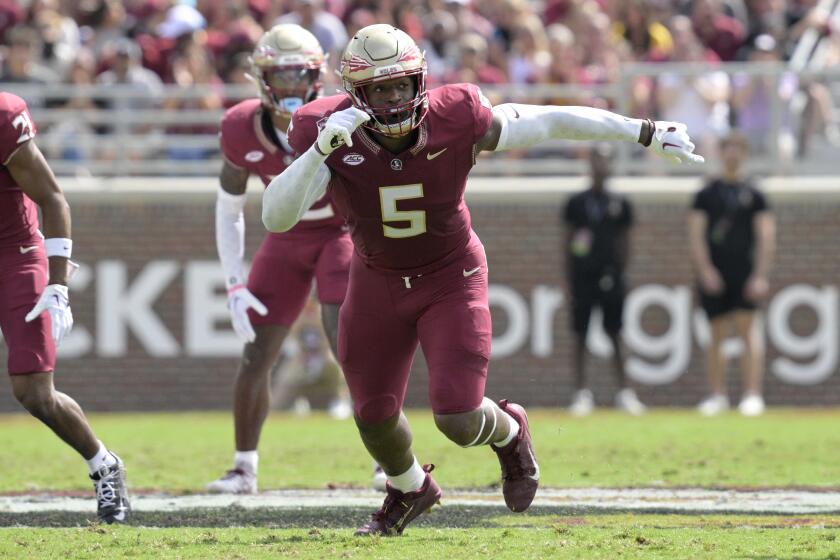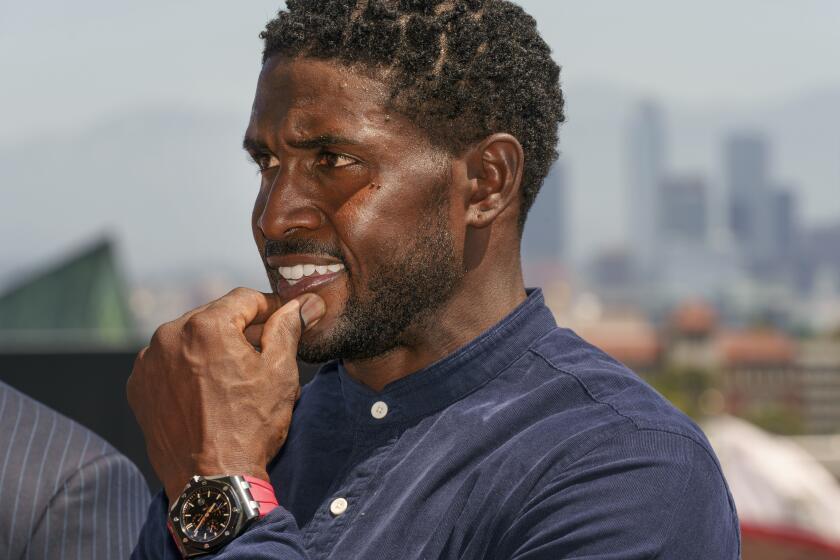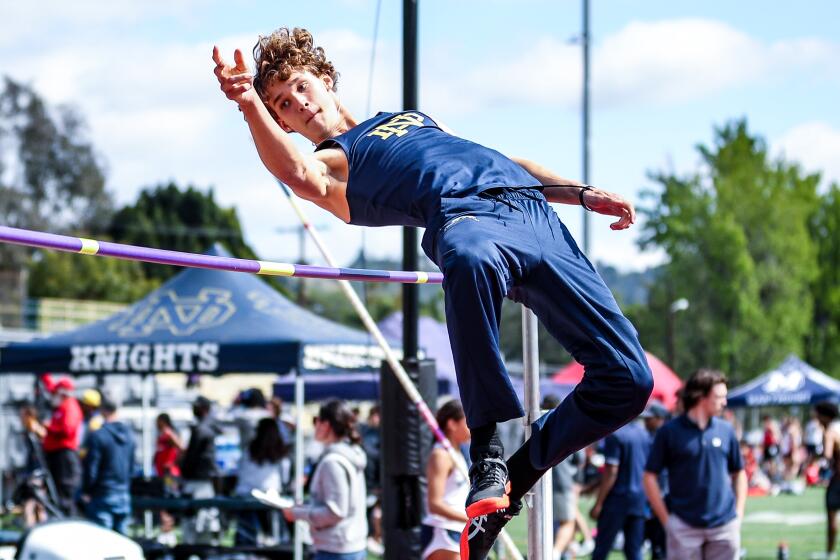NBA lockout could be a preview of NHL’s 2012 labor talks
The first month of the NBA season was wiped out by a dispute between the league and the players’ union over the division of revenue. Will we be saying the same thing a year from now about the NHL, whose collective bargaining agreement with the players’ union expires on Sept. 15, 2012?
“I’d like to know that too,” said Donald Fehr, the union’s executive director.
It’s easy to picture NHL owners — some of whom also have stakes in NBA teams — watching basketball players make concessions and salivating at the thought of asking for similar concessions next year.
NBA players have agreed to cut their share of basketball-related income from 57% to 52.5%, but owners want a 50-50 split. There’s nothing to stop the NHL, whose players got 57% of revenue last season, for asking for a reduction and threatening a loss of paychecks.
“As a union you treat a strike, which is the counterpart of a lockout, as a last resort and you hope that management treats a lockout the same way,” Fehr said by phone Monday.
“The objective fact is that in football and basketball this year and hockey the last time, in fact, management did not treat it as a last resort. Will it be different this time? We’ll know soon enough. But I don’t know yet.”
Fehr, the former baseball union boss, said he follows the NBA’s labor situation but has no detailed understanding of the proposals. He added that the impact of the NBA talks on the NHL’s labor situation is likely to be minimal.
“Even though we use the same terms in all the sports, like compensation and free agency, they don’t mean the same thing,” he said. “And the economics of all four are different. I think there are self-contained negotiations.”
Several prominent agents, however, see a connection.
“In my opinion, any team sports-related CBA negotiations have some kind of an impact on other team sports,” said Pat Brisson of Creative Artists Agency, which represents NHL and NBA players. “We, as sports agents in the business, are paying attention as per the nature of the industry.”
Scott Norton of Norton Sports said he predicted the NBA would lose half a season or more in order to get major economic changes.
“The bottom line in any of these things is that owners of the teams don’t rely on revenues from the sport for their income, whereas athletes do,” Norton said. “From then on, it’s a matter of the solidarity of the union. In the NHL, players feel owners got a number of issues in their favor the last time.”
Allan Walsh, another prominent agent, emphasized he was speaking for himself and not the NHL Players’ Assn. in noting players made big givebacks in the last deal, including a 24% rollback on existing contracts and accepting a hard salary cap.
“With hockey-related revenue increasing from $2.1 billion at the beginning of this CBA to $3 billion today, the proposition that NHL players should give up more down the road is illogical,” he said. “This is their system. I don’t know how the league can come to the players in the future, say their system doesn’t work and expect the players to give up more.”
That doesn’t mean the NHL won’t try. Or that a year from now hockey players will be locked out. We can only hope that sanity prevails, for once.
Stars shining
The Dallas Stars are sitting just above the NHL’s payroll floor, but they’re getting a lot of bang for their buck.
They lead the Pacific Division at 8-3-0 and share the West lead with 16 points, a surprise given they lost Brad Richards to free agency and they have been in bankruptcy since September. Things are looking up: Goaltender Kari Lehtonen has excelled in compiling a 1.75 goals-against average and .947 save percentage, and Vancouver businessman Tom Gaglardi’s plan to buy the club could be approved by the NHL Board of Governors by month’s end.
General Manager Joe Nieuwendyk maximized a shoestring budget, signing center Vernon Fiddler and right wing Michael Ryder as free agents and reviving Sheldon Souray’s career after the high-scoring defenseman was bought out by the Edmonton Oilers. First-year Coach Glen Gulutzan, who coached the Stars’ top farm team, has brought an organized, defense-first approach that players have quickly learned.
“We’re really well-positioned moving forward with our contracts, with our young players, with lots of room under the cap,” Nieuwendyk said. “Once the ownership gets resolved, it’s going to help because then we can push forward on being relevant again and having some stability that way. Hockey has been very successful in the past in Dallas and it will be again.”
helene.elliott@latimes.com twitter.com/helenenothelen
More to Read
Get our high school sports newsletter
Prep Rally is devoted to the SoCal high school sports experience, bringing you scores, stories and a behind-the-scenes look at what makes prep sports so popular.
You may occasionally receive promotional content from the Los Angeles Times.

